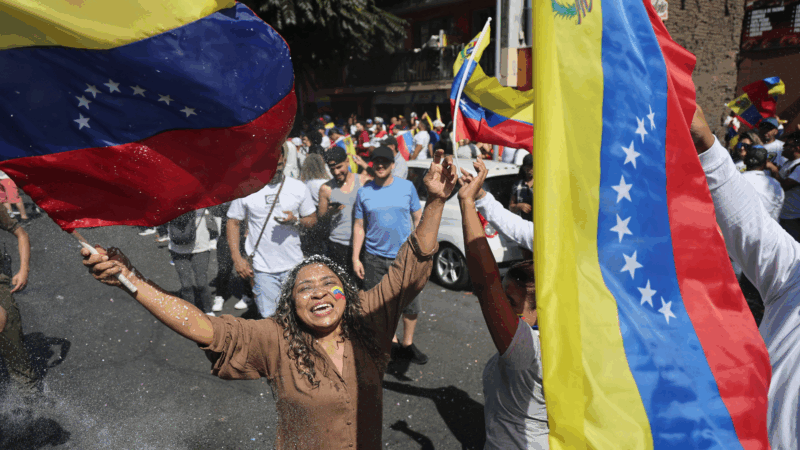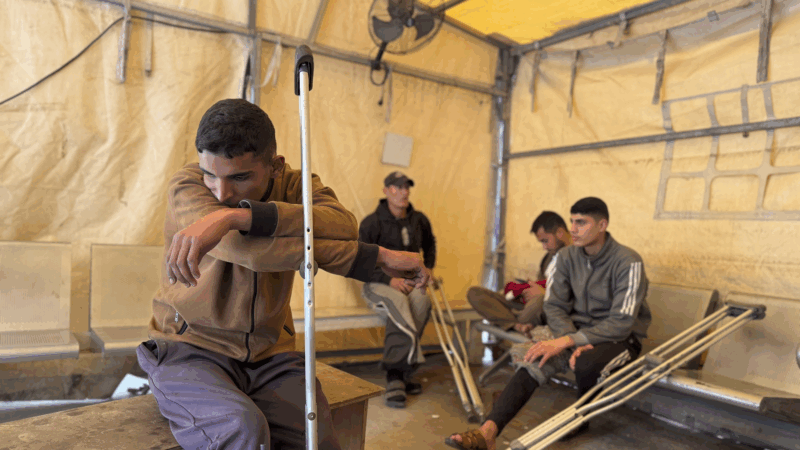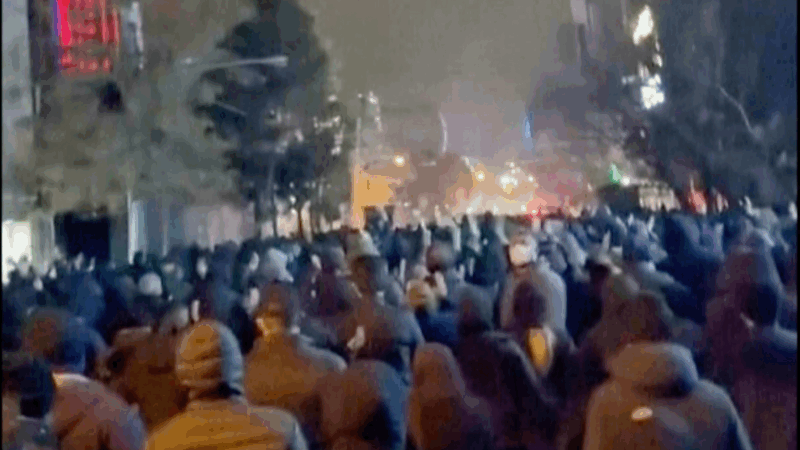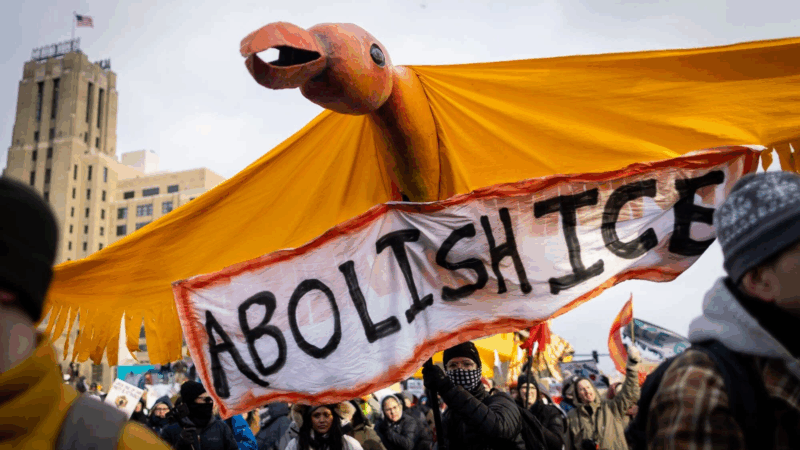Canada, China say fentanyl crisis is only a “pretext” for Trump’s new tariffs
Officials in Canada and China are blasting the Trump administration for using illegal street fentanyl as justification for new trade tariffs that go into effect today.
In a statement, Canadian Prime Minister Justin Trudeau called Trump’s criticism “unjustified,” noting that fentanyl seizures at the U.S. northern border have dropped to “near-zero.”
“While less than 1 percent of the fentanyl intercepted at the U.S. border comes from Canada, we have worked relentlessly to address this scourge,” Trudeau said. He pointed to $1.3 billion Canadian is spending on new security measures along the border.
Both countries called the link between fentanyl smuggling and trade barriers unjustified and announced plans to retaliate.
President Donald Trump is expected to speak about the clash Tuesday night in an address before Congress. In a statement Monday the White House once again pointed to drugs as a key motivation for new U.S. trade barriers, describing the situation as a “national emergency.”
“While President Trump gave both Canada and Mexico ample opportunity to curb the dangerous cartel activity and influx of lethal drugs flowing into our country, they have failed to adequately address the situation,” the U.S. statement said.
The U.S. on Tuesday imposed 25% tariffs on goods from Canada and Mexico and an additional 10% tariff on goods from China.
Trump has continued to describe fentanyl overdoses as an escalating crisis in the U.S., despite the fact that fatal overdoses have plummeted since 2023 — down nearly 24% according to the latest data from the Centers for Disease Control and Prevention.
Trudeau says Canada will retaliate with tariffs on $155 billion on U.S. goods, phased in over the next three weeks.
Chinese officials said they too have already stepped up cooperation with the U.S. on drug interdiction efforts. Speaking Monday, China’s Foreign Ministry spokesman Lin Jian accused the Trump administration of using “the fentanyl issue as a pretext” to threaten China.
“The U.S.’s attempts to politicize and weaponize trade and economic issues, levy tariff hikes on Chinese imports under the pretext of fentanyl, and create blocks to its normal trade, investment and economic cooperation with China will only harm its own economic interests and international credibility,” Jian said.
Many of the industrial chemicals used to make fentanyl — and other synthetic street drugs — have been linked to firms operating in mainland China. In the past, however, Chinese officials have described the fentanyl crisis as a domestic concern inside the U.S. that should be solved by curbing demand and street drug use.
Beijing responded to the Trump administration’s latest tariff hike by slapping additional tariffs of 10-15% on a variety of U.S. agricultural imports, including chicken, pork, soy and beef, starting next week, China’s finance ministry announced.
Mexico has also stepped up law enforcement pressure on drug cartels, staging raids against fentanyl labs and arresting gang leaders. Last month, Mexico transferred 29 cartel leaders into U.S. custody.
Speaking on Tuesday, Mexican President Claudia Sheinbaum said her country, too, would retaliate with 25% tariffs on U.S. goods.
“There is no motive or reason, nor justification that supports this decision that will affect our people and our nations,” she said.
Sheinbaum said she would detail which American products and industries would be targeted on Sunday.
Data from U.S. Customs and Border Protection shows fentanyl seizures at the U.S.-Mexico border have dropped by roughly 50% in recent months.
This escalating trade fight comes at a time when fatal overdoses from fentanyl are plunging in the U.S., with deaths linked to the synthetic opioid down more than 30% over the last year, according to data from the Centers for Disease Control and Prevention.
“It’s very very exciting to see that it’s dramatically decreasing,” said Dr. Nora Volkow, head of the U.S. National Institute on Drug Abuse, in an interview with NPR last month.
Sunday Puzzle: Pet theory
NPR's Sacha Pfeiffer plays the puzzle with KAMW listener Daniel Abramson of Albuquerque, N.M, and Weekend Edition Puzzlemaster Will Shortz.
Venezuela’s exiles in Chile caught between hope and uncertainty
Initial joy among Venezuela's diaspora in Chile has given way to caution, as questions grow over what Maduro's capture means for the country — and for those who fled it.
Inside a Gaza medical clinic at risk of shutting down after an Israeli ban
A recent Israeli decision to bar Doctors Without Borders and other aid groups means international staff and aid can no longer enter Gaza or the West Bank. Local staff must rely on dwindling supplies and no international expertise.
Iran warns US troops and Israel will be targets if America strikes over protests as death toll rises
Iran's parliament speaker warned the U.S. military and Israel would be "legitimate targets" if America strikes the Islamic Republic, as threatened by President Donald Trump.
Bob Weir, guitarist and founding member of the Grateful Dead, has died at 78
For three decades with the Grateful Dead and three more after the group ended following the 1995 death of his bandmate Jerry Garcia, Weir helped build and sustain the band's legacy across generations.
Nationwide anti-ICE protests call for accountability after Renee Good’s death
Activist organizations are planning at least 1,000 protests and vigils this weekend. Officials in major cities cast Saturday's demonstrations as largely peaceful.







